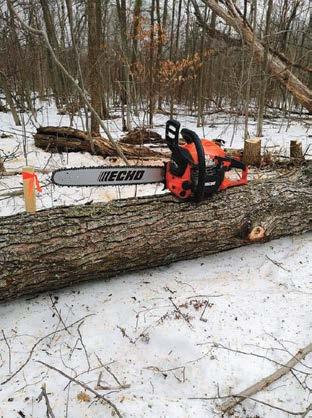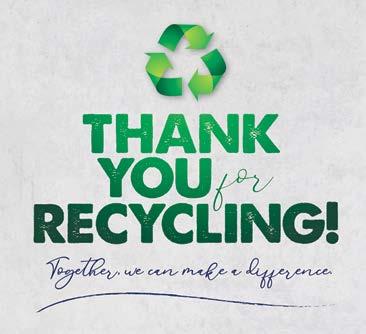





















Norfolk General Hospital (NGH) is seeking four new board members to help shape the future of healthcare in our community.
Lead the future of local healthcare and join the
Norfolk General Hospital (NGH) is seeking four new board members to help shape the future of healthcare in our community.
We welcome applicants from all backgrounds, especially those with experience in business, risk management, board governance, or legal expertise—though it’s not required. What matters most is your passion for making a difference.
were the primary care clinic, dental clinic, and public health office, which comprise the middle section of the facility.
We welcome applicants from all backgrounds, especially those with experience in business, risk management, board governance, or legal expertise though it’s not required. What matters most is your passion for making a difference.
Demolition of interior parts of Gane Yohs started last week.
the most deeply-affected building, and numerous services from the health centre had to be farmed out to various locations in the community since last spring.
As a board member, you’ll attend nine meetings per year, help guide hospital strategy, and ensure high-quality care for those who rely on NGH.
As a board member, you’ll attend nine meetings per year, help guide hospital strategy, and ensure high-quality care for those who rely on NGH.
Lead the future of local
We value diverse perspectives and encourage applications from Indigenous community members and newcomers to our community.
Apply by: April 25, 2025
�������� Apply by: April 25, 2025
Contact: Charlene Charles, Coordinator of Board Affairs,Norfolk General Hospital Board of Directors at ccharles@ngh.on.ca
Scan to Learn More & Apply

Make a difference. Join us today!
“Six Nations of the Grand River (SNGR) is committed to ensuring the health and safety of our community,” SNGR said in a community announcement last week. “Over this past year, Directors and the Executive Team from SNGR have worked alongside Indigenous Services Canada (ISC) counterparts to address the mold situation at the Gane’ Yohs Health Centre.”
Patty Hajdu, minister of Indigenous Services Canada, and her regional staff have agreed to either rebuild or remediate the building, depending on the proposed costs from an upcoming engineering assessment, SNGR said.
We value diverse perspectives and encourage applications from Indigenous community members and newcomers to our community.
�������� Contact: Charlene Charles, Coordinator of Board Affairs, Norfolk General Hospital Board of Directors at ccharles@ngh.on.ca �������� Scan to Learn More & Apply


Six Nations of the Grand River said in a press release last week that Indigenous Services Canada has committed to pay for either the remediation or rebuilding of the compromised health centre, which has been closed down for almost a year after mold was discovered in the building. It was shut down after numerous other band-operated buildings were found to also contain high enough levels of mold that required remediation, with a slew of closures in early 2024 due to unsafe levels of mold.
Gane Yohs has been
SNGR said the pharmacy located at the front of the building and the mental health and addictions office at the back have not been directly affected by the mold.
The areas impacted
“To conduct an accurate engineering assessment, demolition of the interior walls and ceiling must first occur in the area that contained the mold.”
An engineering assessment will be conducted in the upcoming weeks, SNGR said, adding that ISC has followed through on its promise to pay for the dental trailer and other expenses incurred from the situation.
“This trailer was
purchased last year to house our dental clinic until a long-term solution is confirmed for Gane’ Yohs,” said SNGR. “Additionally, we are actively collaborating with ISC to set up temporary structures in Ohsweken. These facilities will provide essential housing for Gane’ Yohs primary care staff, lab personnel, and public health staff, who operate within shared clinical spaces alongside the SNGR Family Health Team. We understand the closure and relocation of the Gane’ Yohs staff has caused frustrations, and we ask for your continued patience as we work to resolve this matter.
We are confident that ISC will maintain our strong partnership on the remaining aspects of this project.”

DONNA DURIC donna@tworowtimes.com
TWO ROW TIMES
Old languages are being revived in stunning new ways, as the Six Nations Language Commission unveils its new Onondaga language app, now available on the Google Play Store and Apple.
After working with elders last fall to devise the language learning app, the Six Nations Language Commission held a celebratory dinner at The Gathering Place Monday to honour the language speakers who helped bring the app to life.
That was after a daylong conference at Monthill Golf and Country Club held by the Six Nations Language Commission, wrapping up a big day for the community on International Indigenous Languages Day celebrated every year on March 31.
“We are excited to announce the launch of the new Onondaga Language App,” said Cheyanne Doxtador, planning and
development officer at the Six Nations Language Commission. “We were working hard this past fall and finally completed a new app for learners to hear and read the Onondaga language.”
The commission celebrated with a turkey dinner for the elders who participated in making the app a reality.
Guests at the launch event Monday night were shown how to download the app to their Apple or Android devices and how to use its special features.
Besides the new app, the Onondaga dictionary is the only other resource for Onondaga language out there, says Doxtator.
Described as “fun and colourful” the app contains professionally-recorded audio files by fluent speakers.
It also contains three different games and three quizzes, as well as culture notes with accompanying audio, video and images.
There is also a searchable database.
“We hope this app will bring the beautiful sound
of Onondaga languages back into the home where it belongs,” app creators said.
A few other Indigenous language apps have already been created and in use for a few years, including Mohawk and Cayuga.
Meanwhile at the SNLC conference, First Nation language teachers from near and far explained how they became fluent speakers and the work they’ve done in their communities to continue bringing endangered Haudenosaunee languages back to life.
The SNLC, now in its 18th year of operation, also launched an online Onondaga language course in February.
As of 2021, there were 1,030 Mohawk language speakers in Ontario; 210 Cayuga speakers; and195 Oneida speakers.
The organization runs on fragmented funding received through donations from businesses, as well as donations from Six Nations of the Grand River elected council.
By 2RT Staff
Autism affects families in myriad ways. Though its name suggests it’s a singular condition, the term “autism” refers to a broad range of conditions characterized by challenges with social skills, repetitive behaviors, speech, and nonverbal communication.
The organization Autism Speaks is devoted to supporting and advocating for individuals with autism and their families. Learning about autism is one of the ways people from all walks of life, including those not affected by autism, can help organizations like Autism Speaks meet their missions.
Though autism is a complicated subject, the following facts and figures can serve as a solid foundation for people who want to learn more about it.
- A 2021 report from the Centers for Disease Control and Prevention indicated that approximately one in 44 children in the United States is diagnosed with an
autism spectrum disorder (ASD).
- A 2018 report from Canada’s National Autism Spectrum Disorder Surveillance System estimated that one in 66 children and youth in Canada are diagnosed with ASD.
- The World Health Organization reports that global studies regarding the worldwide prevalence of autism vary significantly, though it’s estimated that around one in 100 children across the globe is diagnosed with ASD.
- Autism Speaks reports that boys are four times more likely to be diagnosed with autism than girls. In fact, CDC data from 2018 indicates that one in 27 boys in the U.S. was identified with autism.
- Parents who have a child with autism have a two to 18 per cent chance of having a second child who also is affected.
- Parents of twins should know that an autism diagnosis in one twin does not necessarily mean the other

child also will be diagnosed with autism. Autism Speaks indicates that, among identical twins, if one child has autism, the other will be affected about 36 to 95 per cent of the time. Among non-identical twins, if one child has autism, the other will be affected about 31 percent of the time.
- Vaccines do not cause autism. Autism Speaks notes that extensive research conducted over several decades has concluded that there is no link between childhood vaccinations and autism.
- Nearly one-third of children with ASD (31 per cent) have an intellectual disability.
- Nearly half of children with autism wander or bolt from safety.
- Bullying is a significant problem for children with autism. Roughly two-third of children with autism between the ages of six and 15 have been bullied.
Autism affect millions of families across the globe.


By Jim Windle
with files from THE EXPOSITOR, Tuesday, April 21, 1959
The following is a story which first appeared in the Brantford Expositor in 1959. The same issues brought up by Joseph Brant himself at the time of the Haldimand Deed where still being argued in court.
Old U.S. treaties introduced in Indian Suit Reviews of a number of United States court cases based on situations which he said were pertinent to the Six Nations case now before the Ontario Court here were presented by Malcolm Supreme, Montgomery, counsel for the hereditary council of chiefs, as the hearing went into its fourth He cited. among others, the opinion of a U.S. chief justice, who years ago said that the Nations Indians were many, "a free and independent people,” and that neither the English nor the colonial government had jurisdiction over them.
Treaties between the U.S. government and Indians, said Mr. Montgomery, contained parallels with the Haldimand and Simcoe deeds.
Much of Mr. Montgomery's argument in this morning's session of the case in which the hereditary chiefs seek an injunction to restrain the elected council from selling 3.05 acres of land to Cockshutt Farm Equipment Limited, centred around a case decided by an international tribunal in 1912 which he held had a bearing on the present Six Nations action. In the former case, he noted, evidence was heard over a period of years regarding the sale by Cayugas of some of their land to the U. S. Government, and the claim by the British Government that Cayugas, descendants of those with the Canandaigua Treaty of 1794| had been made, now living on the Grand Valley lands in Canada, were entitled to part of the sale proceeds.
The tribunal, which
he said recognized the national identity of the Nations Confederacy, awarded $100.000 to the Cayugas. "It is incumbent upon my friend (defence counsel R. F. Wilson, QC) to show when the Indians lost their status as an independent nation," said Mr. Montgomery in his summing it up.
Called Indians
He said it was significant that while called 12 Indians to the witness stand to testify for the hereditary chiefs, a single resident of the reserve, Mr. Wilson, at the opening of his argument, said he took full responsibility for not calling any Indian witnesses, although he had been urged to do so.
In fact, he said, he had not attempted to deal with the merits of either the hereditary or the elected council system of government, nor whether a majority favoured one system or the other. He cited a decision of a Supreme Court of Canada chief jus-
tice that general legislation applies to Indians as well as to other Canadian citizens.
Some of the terms of treaties used in evidence by the plaintiff's counsel, he said, were not backed by legislation.
"Gift Agreement”
“The Haldimand Deed,” commented Mr. Wilson, “was a unilateral gift" agreement, not signed by or on behalf of the Six Nations Indians.
“The deed,” he added, “was a complete negation of sovereignty.”
“On the evidence,” he concluded his argument, “the plaintiffs have no claim.”
Mr. Montgomery will reply at this afternoon's session. Quotations from the Treaty the Treaty of Ghent and from speeches by Joseph Brant, as well as royal proclamations and extracts from the Canadian archives, were presented by Mr. Montgomery.
Throughout the day Mr. Montgomery delved into the extensive and
colourful history of the Six Nations. Mr. Montgomery's numerous historical quotations were made in an effort to prove his point that the Canadian government has no jurisdiction, despite the Indian Act, over the Six Nations Indians. He maintains that throughout, since the end of the American War of Independence, the Six Nations have been recognized by both combatants the U.S. and British governments as an independent nation.
Mr. Montgomery said the Treaty of Ghent and the Jay Treaty proved the Six Nations to be a separate political entity, The Treaty of Ghent which followed the War of 1812 between Great Britain and the U.S. was ratified by both countries in 1815.
It restored to the Six Nations Indians all the rights they possessed in 1811. Mr. Montgomery said the Six Nations were still a separate entity they were neither Canadians, British, nor citizens of the
Learning the ways that autism can manifest itself can be a good first step toward understanding the condition. Autism is a complex bio-neurological developmental disability that is complicated even further by the various ways people exhibit its symptoms.
No two people with autism behave in the same way, so symptoms that are identifiable in someone will not necessarily be present in another. The
National Autism Association notes that autism is a spectrum disorder, which means it can range from very mild to very severe cases. But the organization Autism Speaks notes that many people with autism have sensory issues that typically involve overor under-sensitivities to sounds, lights, touch, tastes, smells, pain, and other stimuli.
Autism Speaks also indicates that people with autism may experience social communication challenges and exhibit restricted and repetitive behaviors.
Social communication
challenges.
Difficulty with verbal and non-verbal communication affects both children and adults with autism. Treatment, especially when it begins in early childhood, can help people with autism overcome some of these difficulties, which include:
- Understanding spoken language
- Using spoken language appropriately
- Understanding or appropriately using gestures
- Making eye contact
- Understanding or appropriately using facial expressions
- Understanding or
appropriately using tone of voice
People with autism also may not understand that certain expressions are not meant to be taken literally.
Autism Speaks also notes that additional social challenges may indicate the presence of autism. Such challenges can include difficulty with:
- Recognizing emotions and intentions in others
- Recognizing one’s own emotions
- Expressing emotions
- Seeking emotional comfort from others
- Feeling overwhelmed in social situations
- Taking turns in conversation
- Gauging personal space
Restricted and repetitive behaviors
Behaviors associated with autism vary greatly across the spectrum. Someone with mild autism may not exhibit any such behaviors, while they may be instantly recognizable in others elsewhere on the spectrum. Autism Speaks notes that these behaviors may include:
- Repetitive body movements, such as rocking, flapping, spinning, or running back and forth
- Repetitive motions
United States. Referring to the Jay Treaty of 1795 which was ratified by Britain and the U.S. and was rejected in 1956, Mr. Montgomery said, "we are not concerned in whether it was valid in 1956."
But the Indians were concerned with the anomalous situation which had arisen. This treaty washed out all treaties made before the War of 1812, but it had not been ratified by the Canadian Parliament said Mr. Montgomery.
Referring to the Six Nations legal position Mr. Montgomery said most of the references to the status of the Six Nations Indians were made in American cases. He quoted one U.S. case which stated that no state in the U.S. had power to seize any lands belonging to the Indians.
Another case had mentioned that the Six Nations had never been U.S. citizens but were a free and independent nation.
with objects, such as spinning wheels, shaking sticks and flipping levers
- Staring at lights or spinning objects
- Ritualistic behavior, such as lining up objects or repeatedly touching objects in a set order
- Narrow or extreme interests in specific topics
- A need for unvarying routine and a resistance to change. For example, someone with autism may need the same daily schedule and may need to eat the same meal menu and wear the clothes each day.
A trial began Thursday for two people accused in the death of a provincial police officer in 2022 on the border of the Mississaugas of the Credit First Nation, with the Crown saying witnesses will testify that one of the accused fatally shot the officer before both suspects fled in a stolen vehicle, prompting a police hunt.
Ontario Provincial Police Const. Grzegorz Pierzchala was shot on Dec. 27, 2022 while responding to a vehicle in a ditch just west of Hagersville.
Police said at the time that Pierzchala was killed the same day he learned he had passed his 10-month probation period with the OPP.
Randall McKenzie, 27, who has ties to Mississaugas of the Credit First Nation, and Brandi Stewart-Sperry, 32, were each charged with first-degree murder in the 28-year-old officer's death. Both of the accused have pleaded not guilty.
In the jury trial taking
place in Cayuga, Ont., the Crown is looking to prove that McKenzie was the shooter, and that Stewart-Sperry intentionally helped him.
Police reports say around 2:30 p.m. on Dec. 27, 2022, Pierzchala was responding to reports of a stolen 2021 black Chevrolet truck that had landed in the ditch on Townline Road near Concession 14, just west of Ojibway Road between Hagersville and the Mississaugas of the Credit First Nation (MCFN).
According to police, the suspects opened fire on Pierzchala, who police believe did not have a chance to draw his own weapon.
Police reported to EMS that the officer received gunshot wounds to the chest and leg, and was transported to a nearby hospital with life-threatening injuries, where he later died.
The two suspects fled in the stolen vehicle, and then on foot into the bush behind a home on Mississauga Road on the Mississaugas of the Credit First Nation.
Police had issued an Ontario-wide shelter in place
Haudenosaunee

order as they searched for the suspects.
Stewart-Sperry was found nearby and arrested at a site just off Ojibway Road at around 6:30 p.m. while McKenzie was caught east of that location around 6:50 p.m. in a field near Ojibway Road.
During the first day of trial last week, prosecutor Fraser McCracken said in his opening statement that Pierzchala was responding to a call about a car in a ditch, a common report the OPP receives in the winter.
"As I'm sure you can imagine, this is a routine call," McCracken said.
Pierzchala's body camera shows the moments leading up to and including his death, he said.
In the footage, Pierzchala
can be heard advising the suspects that the camera is recording, McCracken said.
"You will see him exiting the cruiser, notepad in hand," McCracken told the jury. "As he dies, the footage shows two people walking away from him.”
A few quiet cries could be heard in the courtroom after the body cam footage was played.
McCracken said an autopsy showed Pierzchala was shot six times.
A witness alleges that McKenzie demanded the keys to her car after the shooting, and that both suspects subsequently drove off in it.
McCracken said he also expects witnesses will tell the court that the allegedly stolen car sped away from
the scene, leaving Pierzchala on the road.
An officer has testified that police searched for the suspects using a helicopter's thermal imaging technology on that cold and dark December evening, before both were taken into custody.
Testimony so far revealed that police recovered a Glock 19 handgun near the area and McKenzie’s DNA was found on the weapon.
The Crown also testified that there was a hole in the hoodie McKenzie was wearing with gunshot residue on it.
More witnesses and an OPP officer testified on Monday.
One witness, Michael Ehl, testified that he tried to help the officer, who was on the ground groaning.
Another witness, Paul Reichenbach, testified he saw Pierzchala fall down and a man and woman getting into the Chevy Silverado.
Reichenbach had tried to block the truck from leaving the scene, court heard, but was told by another woman to let the truck go
because he (the accused) had a gun.
“Smoke was rising, tires were squealing,” he testified, adding that he then followed the Silverado toward Hagersville and the driver was “very unsafe.”
“We were probably doing anywhere from 90 to 120 [km/h],” Reichenbach said, adding that he stopped chasing the vehicle because he was worried people might get hurt.
OPP Detective Paul Drake also testified the Silverado was abandoned at a home on Mississauga Road, where McKenzie’s mother lived.
Other witnesses expected to testify include McKenzie's brother, officers involved in the investigation and forensic experts who will speak to the evidence.
Following the Crown's opening statement on Thursday, court began hearing testimony from witnesses who stopped at the side of the road to help after spotting the car in the ditch.
Witness testimony continued Friday and Monday.
recognition of students who utilize indigenous knowledge and languages in their studies.
Awarded to a student who has demonstrated the following in their post secondary studies:
Respect - conduct themselves appropriately within cultural protocols
Reciprocity – demonstrated community service/benefits to the community
Integrity – honesty – Community contact with a relationship of respect and reciprocity
Is
and integrates language in their studies
Liz ne gya:soh, Clause degehsęnase:’ Hwihs niwahshę gei: niwagohsriy’agoh. Nę:toh ho:wehniwagahdo:geh Hyei Niyohwęja:ge:. Gayogoho:no’ niwagohwęj’odę:. Ganyadę: niwagesyaodę:. Six Nations Polytechnic ho: Gayogoh:no’ a:gadewayęs.
My name is Liz. My last name is Clause. I am 54 years old. I am from Six Nations. I am Cayuga Nation. I am Turtle Clan. I am learning Cayuga at Six Nations Polytechnic.
When I was younger, my teachers were Reg Henry and Wilma Johnson. They taught the basics of the Cayuga language, like colours, numbers, clothing, weather, and some commands, until grade six. In grades seven and eight, we were not taught any language. At that time, they did not have Cayuga or Mohawk language taught in high school like they do now. It was compulsory that we had to take at least one year of French in high school. Since we did not speak the Cayuga language very much at home, I did not see the point of practicing what I had learned up until grade six. As a result, I forgot a lot of it until I entered the Bachelor of Arts Ogwehoweh Language Program (BAOL) in the Cayuga Language at Six Nations Polytechnic. The words started coming back to me.
In September 2019, I took the BAOL program and graduated in June 2023. My first year was part-time, which meant, I had to go for an extra year to graduate. Unfortunately, at the end of our first year, we had to transition to online learning due to C.O.V.I.D. This made things difficult because no one was prepared for online learning or teaching. It was a very different experience than in-class learning, where we spoke to each other. It did not help that many of the students or teachers had poor internet services and kept cutting out when speaking. Many students did not speak because we did not want to speak over one another or were just uncomfortable learning this way. Sometimes, the internet was so bad we had to cancel class because we kept getting kicked out of Teams. The most difficult challenge for a lot of us during C.O.V.I.D. was to keep learning while we lost family members due to C.O.V.I.D.
In November 2021, I lost my sister to C.O.V.I.D., and my world changed. I was angry, hurt and lost. I remember thinking, I am doing what I am supposed to be doing, learning my language and culture; why was she taken from me? I wanted to quit school and quit everything. During that time, we did not know much about C.O.V.I.D. I had to plan
a small private funeral for the immediate family and drop off food and supplies to different households because her children and their families had it too, and their dad was in the hospital. I had to help them as much as possible. My teachers were very benevolent with my situation and gave me extra time for my studies but I still wanted to quit. I was too angry. Then I spoke to one of my teachers who told me to keep learning the language, and it would help me through my grief. At that moment, I could see my sister looking at me and saying, “Lizzy, don’t you dare quit! Mom didn’t raise quitters.” My sister was my biggest supporter, and I could not disappoint her. So I continued on learning, got all my assignments and homework in on time and stayed in school.
We were online for two years before we got to go back into the classroom. Because of the missed in-class speaking and poor internet issues during those two years, I felt like I was still in year one. We returned to in-class learning in September 2022, when I was finishing my last four credits of my third year. I decided to take the Adult Immersion Program Dwadewayęhsta’ Gayogoho:no’ (DG) during the day while continuing at SNP BAOL in the evening. I thought I would need that extra help to get me to where I thought I should be in speaking in my third year. I completed two years at the Adult Immersion Program at DG. This helped me greatly, but I still think I should be better at speaking than where I am today due to switching to online learning during C.O.V.I.D.
I returned back to Six Nations Polytechnic to complete my fourth year of the Honours Bachelor of Arts Ogwehoweh Language Program (HBAOL) in the Cayuga Language. I will be graduating this June 2025. I have been in school for 6 years, learning my language, but I still feel I have so much more to learn and I want to keep learning. During these years of school, I saw that we need more second language speakers so they can create more first language speakers because we do not have many first language speakers left. We have to keep the language learning going so we do not lose it. I also noticed that we need more resources created for language learners. This year, I created a 100page crossword puzzle book with a 100-page answer book that includes charts and grammar for one of my classes. For another class, I created a recipe book in cayuga language. I want to create more language resources to help others learn. I have so many ideas and so little time while in school. I hope to try to create some of those ideas this summer.
I want to go back into an Immersion program now. To get that everyday speaking. I need that in my life. In my home, my boys and my husband are now picking up words and phrases in the Cayuga language, which makes me so proud. Even my dogs know commands in the language. I thought it would be difficult for the two shepherds who are older to pick it up because they were taught English first, but they quickly picked it up. My youngest dog, who is a Norwegian Elkhound, only knows Cayuga. If you try to command her in English, she just looks at you. So this little strategy helps teach my boys and husband to learn the commands in Cayuga, and they have to say them properly, or she will just look at them. This is just one way of teaching the language to my family. I am so lucky and thankful to have the support of my family on my learning journey. I appreciate everything I have learned from my teachers at SNP and DG and hope to keep learning for years to come. I think in order to be a really good speaker, you need to be learning for more than 10 years. I am also grateful to the Grand River Post Secondary Education Office (GRPSEO) for the support and funding to accomplish all my schooling at SNP because, without them, I do not think I could have accomplished all that I have. My advise to the younger generation, stay in school, keep learning and find some kind of field that makes you happy, whether the field is language, nursing, computers, law, science, etc. Don’t give up when things get hard and you feel like nothing is working. Just stop, take a breath, step back, and the answer will come to you on how to get through it. Then, you can continue learning. I am so glad I did not quit when I lost my sister. I know she is with my mom, dad and brother, and they are all smiling down on me, proud I am still going.



know the score.
By: Dan Ralph
Artificial intelligence has become an important part of business operations globally, including the sports betting industry.
Bettors have more information at their fingertips to make more informed decisions, while operators can integrate AI technology to provide better odds calculations and data-driven insights. However, longtime AI strategist David Borish feels artificial intelligence in sports betting is a double-edged sword.
"The rapid advancement of AI has revolutionized various industries and sports betting is no exception," Borish said.
"However, the adoption of AI in sports betting also presents a complex set of challenges and ethical considerations that must be carefully navigated." Implementing AI gives bettors more details and team and player statistics/analytics to theoretically make more informed
decisions. Wagers can be made based upon upto-date information and historical trends, rather than intuition with limited facts or background. But with that come inherent risks.
Bettors can become so flushed with information they wager beyond their means, confident of landing the big score. If that doesn't happen, the player could continue wagering to make up for it, creating the potential for further losses.
Borish also said a reliance on AI creates the threat of homogenization as well as data privacy and security concerns.
"As AI becomes the go-to analysis method, decision-making may converge, reducing the diversity of approaches that make markets dynamic," he said. "This lack of diversity could decrease opportunities for significant outperformance by bettors and, in the extreme, might lead to markets simply mimicking


each other.
"As AI models process and store vast amounts of sensitive user information -- including financial data -- the risks of breaches and unauthorized access become significant concerns. And while AI-powered systems can help identify patterns of problematic betting behaviour and provide targeted interventions, they can also inadvertently fuel addictive tendencies by honing in on user preferences and habits."
Something not lost upon the Responsible Gaming Council.
"AI is obviously very present when it comes to the gambling sector right now," said Melissa Toney-Williams, the RGC's Associate Director, Prevention Programs.
"RGC is looking to explore and understand both how operators and bettors are using it in the space.
"What we generally focus on is educating bettors in general … the reason is it (AI) can be used as
another tool in the arsenal with a group of people who already feel they have the skills, knowledge and expertise."
That also means educating bettors about all facets of sports betting.
"We want people to understand it doesn't matter what you feel you have as a tool, the reality is even within that context there are going to be things, and will always be things, that may be out of your control," Toney-Williams said. "So it's the mindset we're looking to shift for people to understand if you're going to bet there's always going to be the risk of losing.
"So when you're going to play, just keep a few things in mind to kind of keep you centred and (understand) why you're playing that game so you don't get sucked in and you don't start to bet more aggressively … so you don't always rely on things you believe are going to give you the edge when they may not."
AI in sports betting might be a hot-button topic, but some in the industry appear uncomfortable discussing it publicly. Four operators along with the Alcohol and Gaming Commission of Ontario either didn't respond to interview requests or declined comment after initially expressing an interest to do so.
One organization willing to address the matter was the Ontario Lottery and Gaming Corp. It said "the integrity of the markets is paramount for our product and our customers."
"We have oversight of our service providers processes to provide ourselves comfort that we are supporting the integrity of the sports we offer," it said in a statement. "We also partner with leagues and third-party partners to support the detection of suspicions play.
"More importantly, we use AI and machine modelling to protect our players. We leverage AI to support our responsible gambling
programs by detecting at risk play behaviour. By analyzing complex patterns in player data, we take the necessary steps to support the player as needed, through targeted interactions to provide the right RG support."
Still, Borish feels AI in sports betting presents a slippery slope.
"Absolutely and I think it's only getting more slippery," said Borish, who's based in New York. "The reason is better, faster cheaper and so the large language models are getting better by the day.
"There's a lot of that uncertainty right now, which is not fun."
Industry insiders caution bettors against thinking AI gives them an insurmountable edge. Not only do sportsbooks have access to the same information/platforms, they also have more resources to invest into making AI work best for them.
By Rob Maaddi
PALM BEACH, Fla. (AP) —
The future of the tush push has been pushed until next month.
NFL team owners had been set to vote Tuesday on Green Bay’s proposal to ban the play that’s helped the Philadelphia Eagles win one Super Bowl and reach another, but the proposal was tabled until May.
Team owners approved modifying the kickoff rule, expanding replay assist and revising overtime rules, along with other changes. The decision to postpone the tush push vote means the debate will continue as the league seeks more information about the safety of the play. Proponents of the play and those who oppose it presented strong arguments while the league's medical experts expressed safety concerns. As for changes that did pass, regular-season
overtime rules now will match those in the playoffs and both teams will have a chance to get a possession even if the offense scores a touchdown on the opening drive. The proposal was amended to make overtime 10 minutes, not 15 minutes. Owners also approved a proposal from the NFL Competition Committee to allow replay assist to consult on-field officials to overrule objective calls such as facemask penalties, whether there was forcible contact to the head or neck area, horse-collar tackles or tripping if there was “clear and obvious” evidence that a foul didn’t occur. Replay also would be able to overturn a roughing-the-kicker or running-into-the-kicker penalty if video showed the defender made contact with the ball. Replay assist could wipe out a foul only if it was incorrectly called, but it will not be used to throw a flag
if a penalty wasn't called.
The dynamic kickoff rule becomes permanent, with touchbacks moving to the 35-yard line instead of the 30.
Even though the league has said there haven’t been any injuries reported as a result of the tush push, the potential risk involved in Philadelphia’s version of the quarterback sneak has sparked intense discussions.
The Packers, who lost to the Eagles in a wild-card playoff game, also cited pace of play as a reason to consider eliminating the play. Rams coach Sean McVay is against the tush push but said Tuesday morning he'd be surprised if it gets banned this week. Los Angeles also lost to Philadelphia in the playoffs.
Bills coach Sean McDermott is leading the push to get rid of it, even though Buffalo used it more than any team other than the
Eagles.
It takes 24 of 32 votes to approve rule changes.
“I feel where I’m most concerned is, even though there is not significant data out there to this point, my biggest concern is the health and safety of the players, first and foremost,” McDermott said Monday.
“It’s two things. It’s force, added force, No. 1, and then the posture of the players, being asked to execute that type of play, that’s where my concern comes in. ... I’m not a doctor. I’m not going to get too deep into that situation there, in terms of how much data, how much sample. I don’t think that’s really always the best way to go. There is other data out there that suggests when you’re in a posture like we’re talking about, that can lead to serious injury. I think being responsible and proactive in that regard is the right way to go.”
By: Jim Bronskill
Liberal Leader Mark Carney promised Monday to get the federal government back into the business of home building, while Pierre Poilievre's Conservatives pitched a national energy corridor to fast-track approval of key infrastructure.
The New Democrats rolled out their own national project — a promise to help retrofit 3.3 million homes and pay for it by cutting supports for big oil and gas companies. The rival party leaders touted their ambitious plans as ways to make the country stronger as the United States menaces Canada's economy with a steady stream of fresh tariffs.
Canadians head to the polls for a general election on April 28.
The Liberals propose doubling the pace of construction to almost 500,000 new homes a year, which would involve public-private co-operation on a scale not seen since the end of the
Second World War. A Carney government also would create a new entity, Build Canada Homes, to act as a developer on housing projects and provide more than $25 billion in financing to innovative builders of prefabricated homes. At a campaign stop in Vaughan, Ont., Carney said the new approach aimed to "build faster, build smarter and to build more affordably."
The Conservatives' planned national energy corridor would expedite approval of transmission lines, railways, pipelines and other critical infrastructure. Canada needs big projects that link its regions east to west as U.S. President Donald Trump threatens Canada with tariffs, Poilievre said at a campaign event in Saint John, N.B. "We need to be able to get our resources across Canada, bypassing America, so we can trade more with each other and sell our resources to the world," he said.
On Wednesday, Trump is expected to slap "reciprocal
tariffs" on multiple countries — including Canada — in response to various alleged trade practices. Carney has stressed the need for Canada to fundamentally realign its economy in response to Trump's levies and threats of annexation.
"We are facing the biggest crisis of our lifetimes, and we are going to build our way out of it," Carney said Monday.
Poilievre is campaigning on a need for change, warning that Canadians can ill afford to re-elect the Liberals after almost 10 years at the helm.
On Monday, he accused the Liberals of blocking major energy projects and depriving Canada of billions of dollars.
NDP Leader Jagmeet Singh said 2.3 million low-income households would get free energy-saving retrofits like heat pumps, air sealing and fresh insulation under the party's retrofit plan. The party would spend $1.5 billion annually over 10 years to complete the upgrades. The NDP says another

$300 million per year to expand the Canada Green Homes Initiative would allow an additional one million households to finance similar retrofits with low-cost loans.
Singh said the program would save a family up to $4,500 a year on their energy bills and also create jobs to facilitate the retrofits.
"This is how we fight the climate crisis and protect Canadians from the effect of Trump's trade war at the same time," he said in a media statement.
The NDP said it would pay for its proposed retrofits by cutting annual subsidies and tax breaks for the oil and gas industry. Citing figures from the parliamentary budget officer, the party said cutting those supports would save Ottawa $1.8 billion per year.
"In the face of Trump's trade war and a worsening climate crisis, we have a choice," Singh said. "We can let CEOs and Big Oil profit while families pay the price, or we can take bold climate action that protects
your job, lowers your bills, and builds a better future for everyone."
As the second week of the campaign began, several opinion polls suggested the Liberals were leading the second-place Conservatives — in part because some progressive voters have abandoned the NDP.
The Tories have been dogged for days by reports of behind-the-scenes turmoil over the party's campaign focus.
The Liberal campaign has hardly been trouble-free either.
Carney was pressed to explain Monday why he hadn't replaced a Toronto-area candidate whose recent comments about a Conservative candidate were being broadly condemned.
Markham-Unionville Liberal candidate Paul Chiang told a Chinese-language newspaper at a news conference three months ago that everyone at the event could claim a bounty on Don Valley North Conservative candidate Joe Tay if they turned him in.
Tay is one of six activists targeted by Hong Kong police, which announced rewards of HK$1 million, equivalent to about C$180,000, for information leading to their arrests. Chiang apologized Friday, calling his comments "deplorable" and late Monday he dropped out of the race. Carney said before Chiang quit that his comments were "deeply offensive" and a "terrible lapse of judgment" but otherwise stood by his candidate, calling him a "person of integrity" who has served his community as a police officer.
MPs have been followed on the street, harassed and subjected to death threats in recent years, and constituency offices have been vandalized. In response, the federal government is offering private-sector security services to election candidates who feel intimidated or threatened but do not meet the threshold for police protection.














send notices to ads@tworowtimes.com
Dear Six Nations Community,
My Name is Dawn and I feel like I have been mistreated by Six Nations of The Grand River Development Corp (SNGRDC). I'm a former employee of the Six Nations Bingo Hall. I was let go for unjust cause. "Just wasn't



working out," that's what I was told by HR when I asked. I then waited my mandatory three months before trying to return as a patron for their Grand Bingo. I was informed that I was not allowed to attend Grand Bingo or be at any of their establishments. As a Six Nations
Community member with status this isn't right and I feel like I'm being targeted by individuals at SNGRDC. As as community member I feel that we need to stick together and let it be known how we are being mistreated.

The 59th Six Nations of the Grand River Elected Council is seeking proposals from a qualified professional or firm to facilitate the development of a multi-year strategic plan.
Deadline: April 4, 2025 @ 4 PM (EST)
Electronic inquiries regarding this RFP shall be accepted up to 6 days prior to closing and may be directed to sncos@sixnations.ca
For more info, visit sixnations.ca or linktr.ee/sixnationsgr


CLUES ACROSS
1. Narrow piece of wood
5. African desert
11. Waxy covering on birds’ beaks
12. Sour
16. Infrequent
17. Former AL MVP Vaughn
18. Policemen wear one
19. Out of the question
24. Used to chop
25. Symptoms
26. Not moving
27. Folk singer DiFranco
28. Comedian Armisen
29. Quantitative fact
30. Incline from vertical
31. Scottish musician
33. Rooney and Kate are two
34. Positioned
38. A very short time
39. Tropical American shrubs
40. Yemen capital
43. Spanish municipality
44. Medical professionals
45. Fibrous material
49. Confined condition (abbr.)
50. Without covering
51. “Mad Men” honcho Don
53. Hockey position
54. Taste property
56. Fertile spots in a desert
58. They precede C
59. “Requiem for a Dream” actor Jared
60. Try a criminal case
63. Liberal rights organization
64. Spoke
65. Insect repellent
CLUES DOWN
1. Unshaven facial hair
2. More thin
3. Show up
4. Seethed
5. Ancient Greek city
6. Poisonous plant
7. Hello
8. College sports official
9. Monetary unit of Russia
10. Wings
13. Take too much of a substance
14. A citizen of Uganda
15. Most appealing
20. Atomic #18
21. Global investment bank (abbr.)
22. Jewish calendar month
23. Popular sandwich
27. Swiss river
29. Incorrect letters
30. Popular entree
31. Foot (Latin)
32. A driver’s license is one form
33. Extinct flightless bird
34. Appetizer
35. After battles
36. It neutralizes alkalis
37. Beverage container
38. Partner to “Pa”
40. Gray American rail
41. Salt of acetic acid
42. Canadian province
44. Dish made with lentils
45. Narrative poem of popular origin
46. For each one
47. Come to terms
48. Test
50. More dishonorable
51. Unit of loudness
52. The Ocean State
54. Monetary unit in Mexico
55. Lying down
57. Thus
61. Where LA is located
62. Western State












ARIES – Mar 21/Apr 20
Aries, a burst of energy propels you to move forward. It feels like everything is clicking, and you are full of ideas and brimming with contagious enthusiasm.
TAURUS – Apr 21/May 21
You are in the mood to get down to business this week, Taurus. It’s a great time to focus on your career or finances. Pay attention to all of the little details as you go along.
GEMINI – May 22/Jun 21
Curiosity takes control this week, Gemini. Opportunities for learning are all around you. You just need to look for them. It may be a new class or a trip that you take with friends.
CANCER – Jun 22/Jul 22
Cancer, this week you may have a lot of emotional processing going on, particularly regarding relationships or past experiences. Embrace these deeper feelings.
LEO – Jul 23/Aug 23
Your social energy could be off the charts this week, Leo. Others will be drawn to your magnetism and self-confidence. It is a great time to network or collaborate.
VIRGO – Aug 24/Sept 22
Efficiency and productivity are the name of the game right now, Virgo. When it comes to organizing and planning, you will be all about getting things done in a timely manner.
LIBRA – Sept 23/Oct 23
Libra, this week is a time for self-expression. You may find yourself pulled toward hobbies or artistic endeavors that enable you to showcase your talents.
SCORPIO – Oct 24/Nov 22
This is a time to dive deep into your home and family life, Scorpio. You want to create a sense of stability at home and address anything that might compromise that. Trust your gut with how to move forward.
SAGITTARIUS – Nov 23/Dec 21
Communication is the key this week, Sagittarius. Initiating important conversations and speaking directly with others is a great way to clear the air and get to the root of these issues.
CAPRICORN – Dec 22/Jan 20
Capricorn, you are focused on your financial well-being this week, but other issues may fall by the wayside. You might have to bring in someone else to keep the balance.
AQUARIUS – Jan 21/Feb 18
Personal goals and ambitions are front and center this week, Aquarius. This could put you in the spotlight and showcase what you want to accomplish to those around you.
PISCES – Feb 19/Mar 20
Pisces, this week invites you to slow down and recharge your batteries as much as possible. You might feel pulled to spend time alone or simply get away for a few days.
